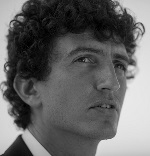
- This event has passed.
Matteo Caravani: Disciplinary Diversification in Karamoja: The Case of Charcoal
9th May 2019 @ 1:00 pm - 2:30 pm
PASTRES/STEPS Seminar with Matteo Caravani, Makerere Institute of Social Research (MISR)
Room 221, Institute of Development Studies
All welcome
Following the Karamojong’s historical transition away from transhumant pastoralism – in what has been termed as the de-pastoralisation process – the regional economic reliance on off-farm activities has steadily increased. Colonial and post-colonial interventions have slowly deconstructed an old mode of production to “civilize” and “modernize” the Karamojong. The forceful change of modes of production, resulted in the current dominant diversification of livelihoods that is shaped by growing inequality and general proletarianisation. The internal responses to the crisis of social reproduction of labour – among which charcoal production features as essential – are again disciplined by the Ugandan government and development partners. These institutions support sedentary agriculture while criminalizing the local charcoal production for its alleged effects on environmental and land degradation, leading to deforestation and thus the weakening of communities’ resilience to future shocks and stresses.
However, while the Karamojong are officially blamed for deforestation due to charcoal burning, initial findings suggest that large-scale commercial producers in central Uganda are expanding their charcoal frontier to Northern Uganda and that these are indeed the key drivers of deforestation.
My paper argues that there is need to move away from a normative understanding of off-farm activities in Karamoja and to recognize the importance of charcoal production beyond the discourse of negative coping mechanisms. Simply criminalizing the Karamojong for burning and selling charcoal or impeding this livelihood through the rule of law will make the inhabitants of this region more destitute. Rather than banning charcoal, government and development partners should support its sustainable production.
About the speaker
 Dr Matteo Caravani is a political economist lecturing on the agrarian question in modern history and the history of economic theory at the Makerere Institute for Social Research (MISR) in Uganda. He graduated from the faculty of Economics, University of Rome ‘La Sapienza’ and he was awarded a PhD in Development Studies at the Institute of Development Studies (IDS) University of Sussex, in Brighton.
Dr Matteo Caravani is a political economist lecturing on the agrarian question in modern history and the history of economic theory at the Makerere Institute for Social Research (MISR) in Uganda. He graduated from the faculty of Economics, University of Rome ‘La Sapienza’ and he was awarded a PhD in Development Studies at the Institute of Development Studies (IDS) University of Sussex, in Brighton.
Dr Caravani worked as an international consultant for the United Nations Food and Agricultural Organization (FAO) both in Palestine and Rome, for the World Food Programme (WFP) in East Africa, for the Overseas Development Institute (ODI) and for the Institute of Development Studies.
He is now an affiliate researcher on the PASTRES (Pastoralism, Uncertainty and Resilience) project. Within PASTRES he focuses his work in deconstructing resilience. Particularly, he is interested in the relationship between existing social structures and power relations and the ways in which these structures and relations keep large portions of the population unable to be resilient to future shocks and stresses.
Contact: [email protected]